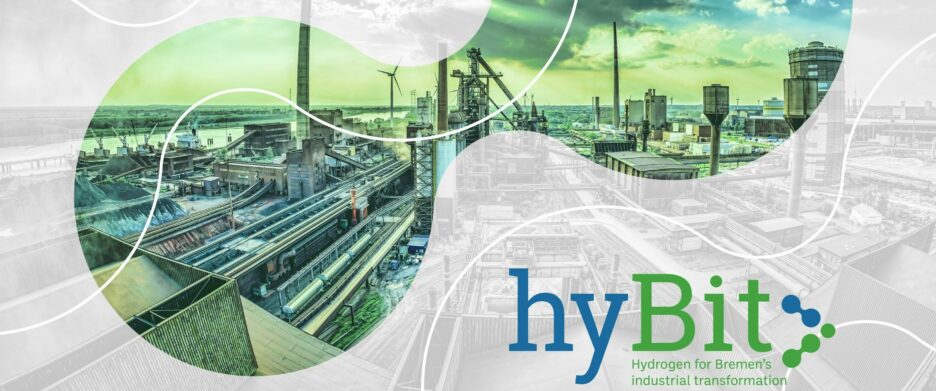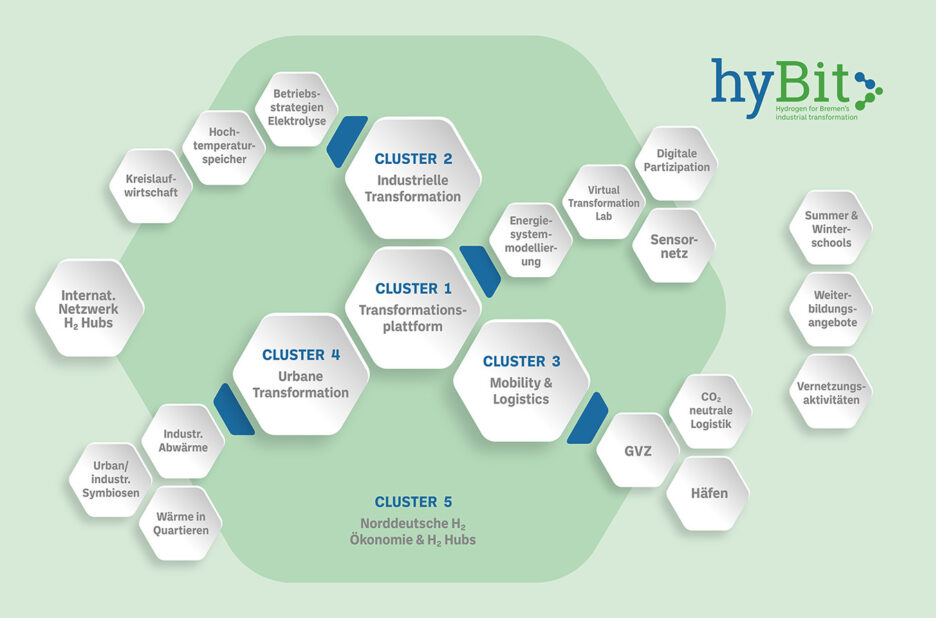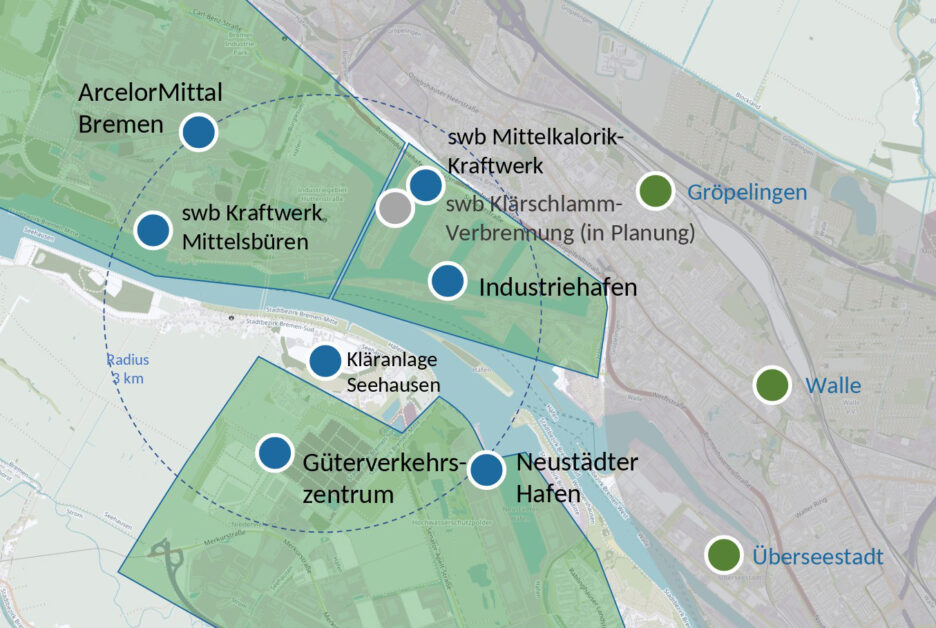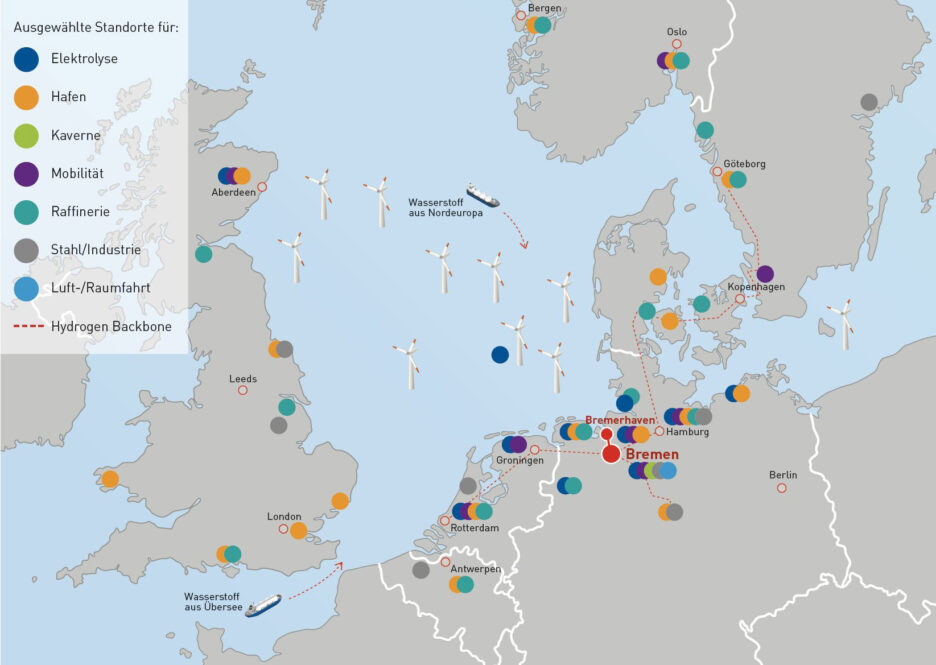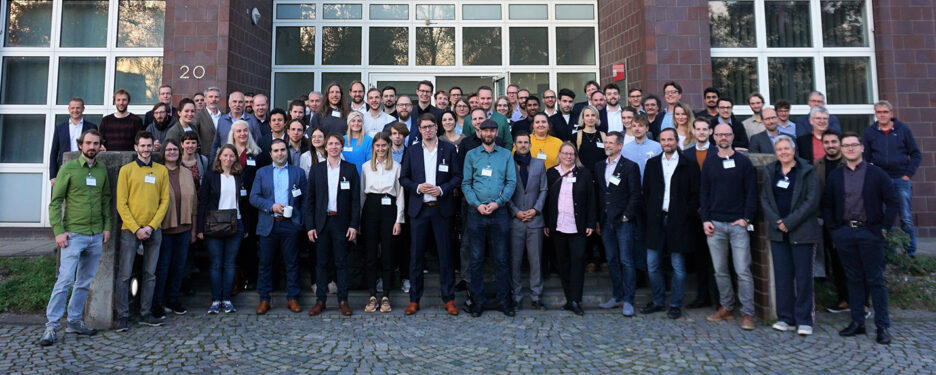hyBit: Hydrogen for Bremen's industrial transformation - An initial impulse for the development of a North German hydrogen economy
Back to project overviewProject description
The hyBit project - Hydrogen for Bremen's Industrial Transformation - is the starting point and at the same time the central initial impulse for a hydrogen hub in Bremen and also the nucleus for a northern German hydrogen economy as part of the transformation to a sustainable and climate-neutral Europe.
The development of a hydrogen economy induces cross-sectoral, far-reaching transformation processes and new interdependencies at various socio-technical, economic, ecological and regulatory levels. The current early phase of the hydrogen transformation is a paradigm shift, both technologically and socially, which is characterized by great uncertainties with regard to the political and regulatory framework conditions and market developments as well as the question of the appropriate transformation path. The development of the hydrogen economy is strongly oriented towards specific centers, so-called hydrogen hubs, which are characterized by a high need for transformation across sectors, but which at the same time justify the necessary investments for the development of a hydrogen economy and will thus be the nuclei of a European integrated hydrogen economy.
This is precisely where hyBit comes in with a holistic approach that takes a cross-sectoral view of the development of a hydrogen hub both locally, regionally and internationally and works on it in the various research clusters with diverse disciplinary research approaches in order to then be brought together in the planned transformation platform. This will allow a better understanding of possible transformation paths for building and shaping a resilient, sustainable hydrogen economy. As a systemic approach with its unique multiple infrastructural requirements at the Bremen site and its planned transformation platform, HyBit offers (implementation) solutions that can also be transferred to other hydrogen hubs.
The joint project is divided into five research clusters and two cross-sectional areas, each with subdivided work areas and work packages:
- Cluster 1: Transformation platform
- Cluster 2: Industrial transformation
- Cluster 3: Mobility & Logistics
- Cluster 4: Urban transformation
- Cluster 5: Conception of a supra-regional hydrogen economy as a socio-technical transformation of industrial centers
- Cross-sectional area Q1: Communication, teaching & knowledge transfer and innovation
- Cross-sectional area Q2: Project management and administration
- Project objective 1: Cross-sector, hydrogen-induced defossilization to achieve the climate targets.
- Project objective 2: Establishment of a regional, integrated hydrogen economy with the aim of defossilizing local value chains in different sectors in coupled transformation processes and continuously expanding these in the direction of industrial-urban symbioses.
- Project objective 3: Resilient design of the defossilization process and the availability of different resources such as H2, electricity, heat, logistics, etc. against external shocks to ensure climate neutrality, economic efficiency and availability.
- Project objective 4: Development of the digital transformation platform for monitoring and adaptive management of the transformation of industrial hydrogen hubs.
- Project objective 5: Providing impetus for networking with partners in the North & Baltic Sea region with the aim of a sustainable European hydrogen economy.
David Sauss 0531 793 893-21
- University of Bremen
- Bremen Institute for Production and Logistics GmbH
- German Research Center for Artificial Intelligence GmbH
- OFFIS e. V.
- Fraunhofer Society for the Promotion of Applied Research e.V.
- Institute for Climate Protection, Energy and Mobility - Law, Economics and Politics e.V.
- Bremen University of Applied Sciences
- Wuppertal Institute for Climate, Environment and Energy gGmbH
- Hamburg Institute of International Economics gGmbH
- Free Hanseatic City of Bremen
- Free Hanseatic City of Bremen - Senator for Science and Ports
- swb Erzeugung AG & Co. KG
- Wesernetz Bremen GmbH
- Weserport GmbH
- BLG LOGISTICS GROUP AG & Co. KG
- ArcelorMittal Bremen GmbH
- WP 1.2.1: Comprehensive concept development of a sustainable,CO2-neutral and resilient H2 hub (University of Bremen and SIZ)
- WP 1.2.3: Multi-criteria scenario design for complex energy and material flow systems (University of Bremen, DFKI and SIZ)
- WP 4.1.2: Creation of heat load profiles (SIZ, Fraunhofer IFAM, Fraunhofer ICT, wesernetz)
Further links
LinkedIn profile of the research project: https://www.linkedin.com/company/hybit/Project page: https://hybit.org/
